Tommy Cash Dropped a New Single, but Who Really Gives a Shit?
Watch the new music video below.
Stay informed on our latest news!
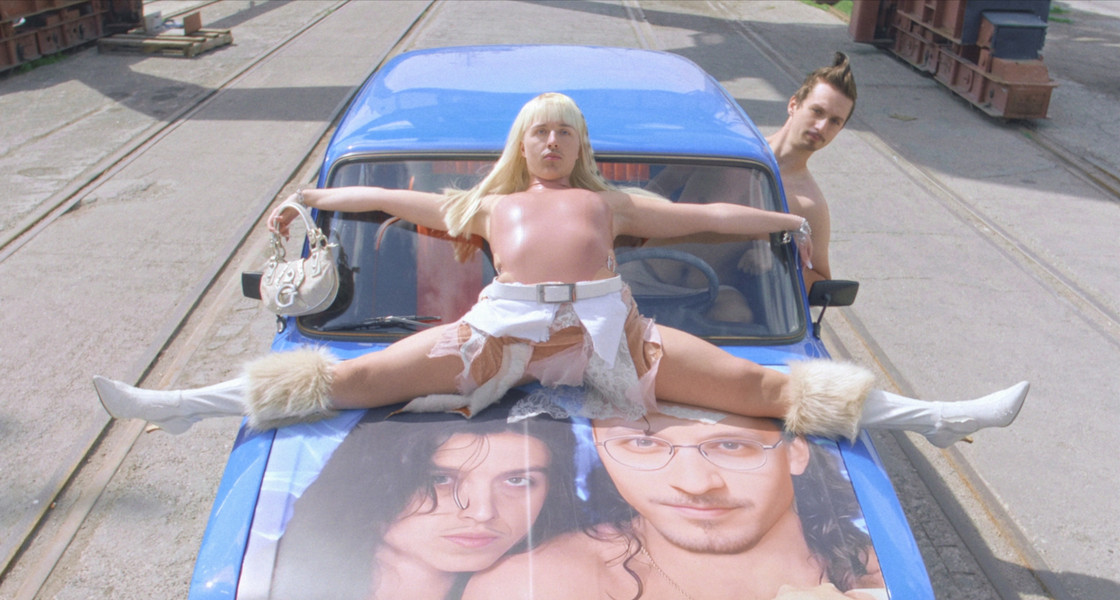
Watch the new music video below.
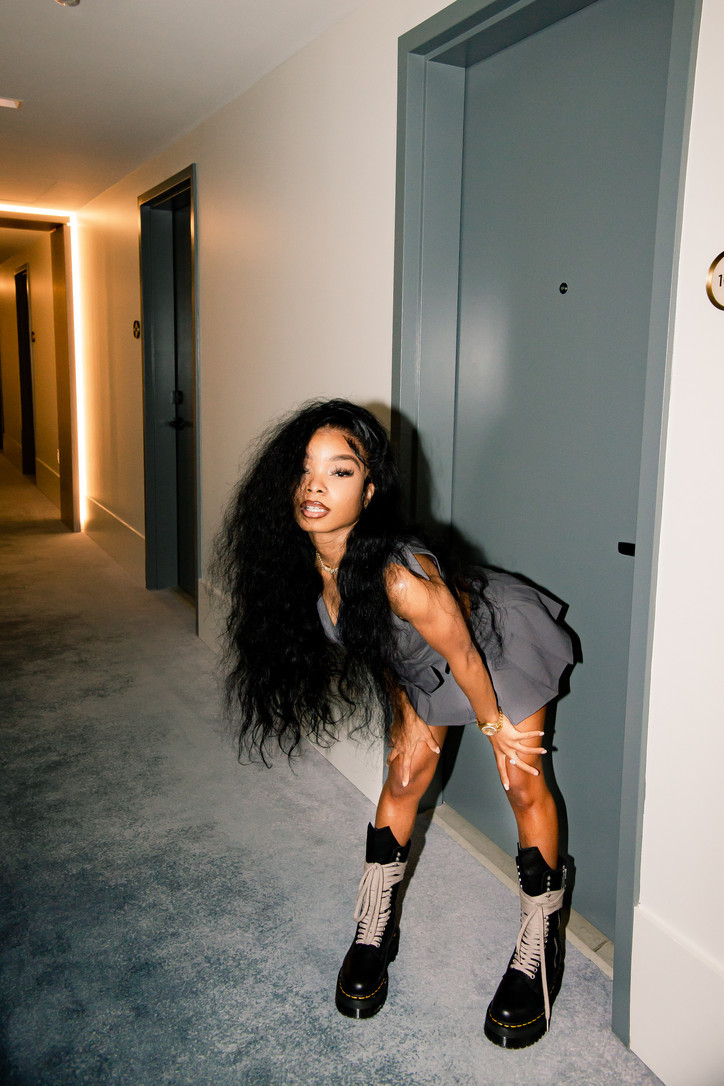
Something that makes the raptress an even more refreshing talent is her work ethic and point of view — she’s not looking at anyone else as competition but herself. Even with all this success, it’s just a start. The rapper, signed now with Arista Records, isn’t wasting any momentum. From the age of 8, she had recognizable talent, and even her grandmother would read her poems and use the word rapper to describe Brooke. Obsessed with Hip Hop early, Brooke began studying the lyrics to raps by some of New York’s finest, like Jay-Z and 50 Cent. The studying she’s done has paid off, and now Brooke is a hot commodity, having been featured on Flo Milli’s “Conceited” remix alongside Maiya The Don and dropping a remix of her own today for “Don’t Play With It” featuring Latto and Yung Miami.
office caught up with Brooke to reflect on how life has changed for her, her work ethic, and the action movies she's manifesting to be a character in.
When you first started rapping, you were around eight and writing poems and journaling. Was there a teacher or anyone who encouraged you to start that habit?
I was the only child. I did things like that can keep myself occupied so that I could get my feeling out. Any teacher that I had, introduced their students to poetry. So, I guess I could just say my teachers probably like fostered it a little bit more, but it was already there.
When you’re writing songs, are the mostly freestyles that you just have to remember when you hit the studio?
Normally I write, but sometimes I go to the studio, and I freestyle. It just depends on how I feel. There's no like, right or wrong way to do it. It just depends. So one morning, I'll wake up, I'll listen to some beats, and I'll take those beats to the studio, or one morning I wake up on YouTube, listen to some beats just to practice, go to studio do it on a different beat. Some days I don't, and I’ll just listen to music in general. And then when I go to the studio, I’ll freestyle, and I just punch in. It really depends on how motivated I am. or anything.
Speaking of motivation, with “Don’t Play With It” having the viral moment it did, how has that shift affected your work ethic?
I push myself in general because this is my passion and I really do believe in it. And it's just therapeutic. So regardless of anyone, I push myself the most because it's what makes me feel good, it’s what makes me feel like I released a lot of weight off my back.
It's refreshing to hear that I feel like not a lot of rappers say it's therapeutic for them. Billy is featured in the song. Do you realize what an important thing you did to feature another female rapper in the original song?
I met Billy B probably around like 2018 or 2019 and I collab with her for the first time in 2021. And the importance of having another female artist on a record is very powerful but I just wanted to put another Brooklyn artist on “Don't Play With It.” She just came to mind because I see someone that I relate to and she just so happened to be a female artist.
You talk about Brooklyn, Bedstuy protecting you and having your back. How has your community built you up in regards to rapping over the past few years of taking it seriously?
It was just the encouragement. Always making sure I had confidence, always making sure that I was protected. They have my back. And once you have like a real good foundation behind you, it's like you feel untouchable so you gonna go either way.
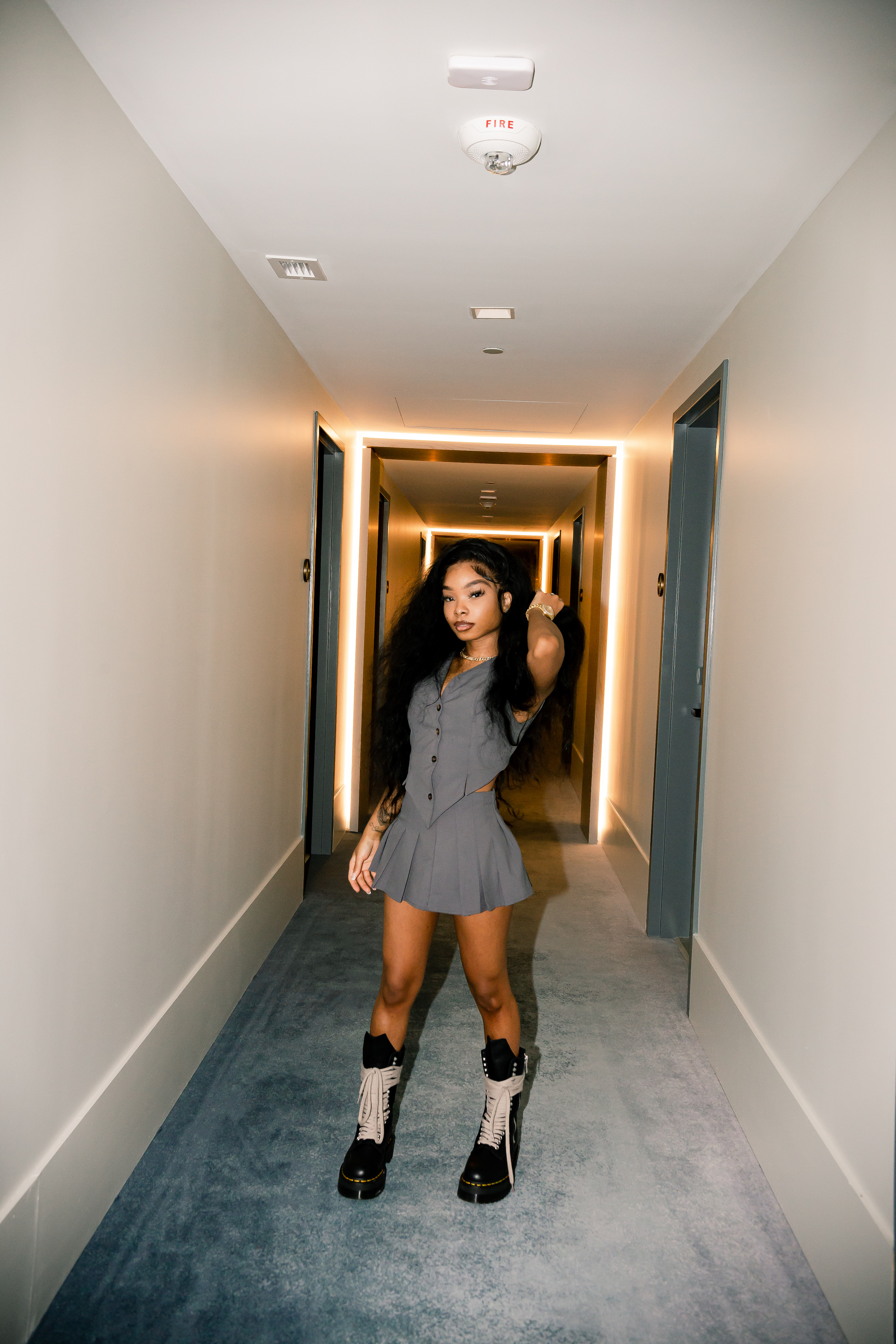
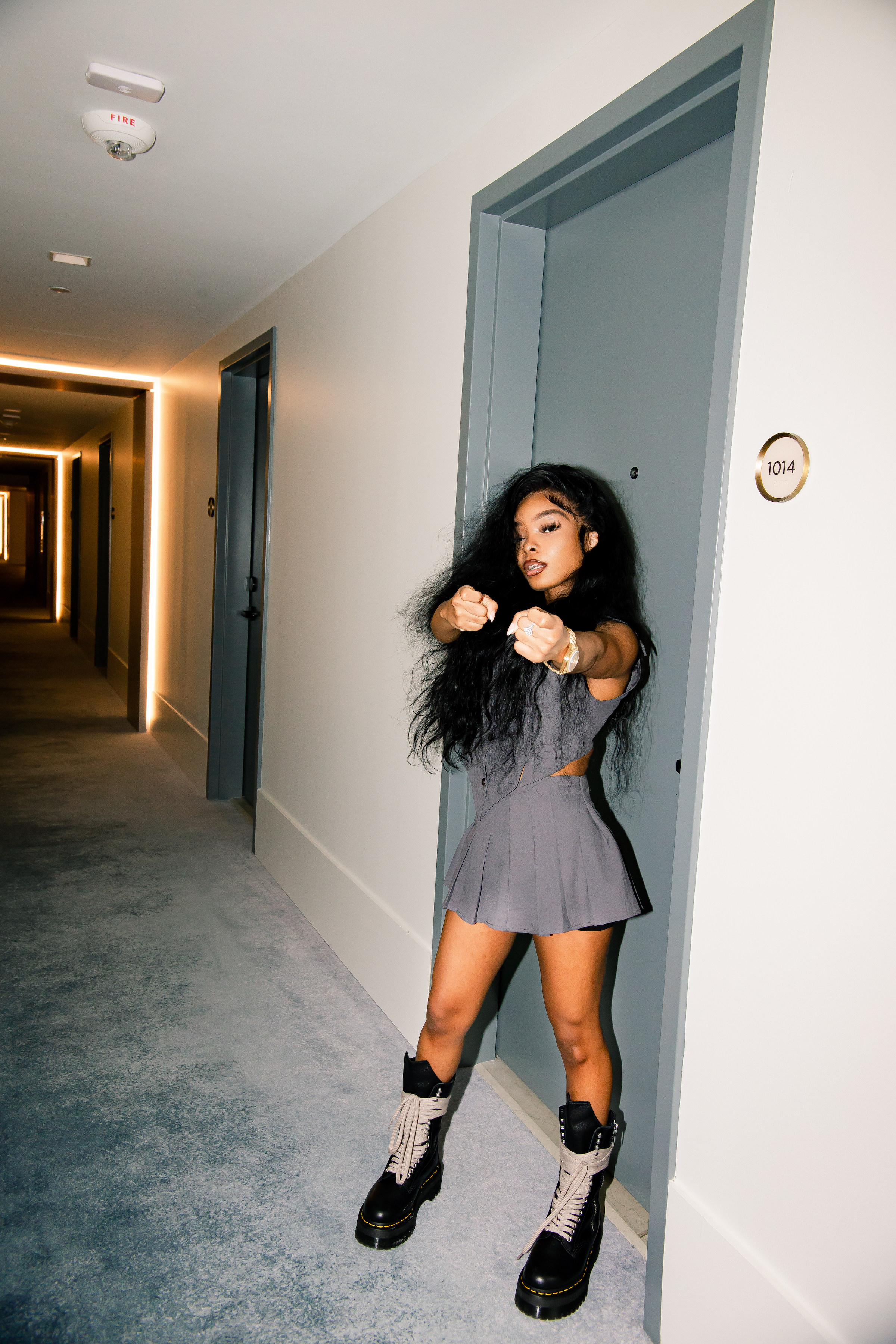
You quit your job working at a shelter on Valentine’s Day; how did you make such an easy break away to do what you love?
For me to leave my job was a big stepping stone. it wasn't easy to leave because I really cared about my clients, but my family and my team, Team 80, made it a real easy transition for me. So, my mom actually told me that I could resign, and when my mom told me to resign, I took it to my team and told them what I was doing. They said they were backing me up. So I have full support, and I wasn't alone. I didn't feel like I was alone doing it. I had good reasons for doing it. Because I was chasing my dream.
Why do you think you were drawn to rap, and what are the ways it’s inspired your everyday life?
It moved me in a different way because the only thing that I had to express myself or feel good about was words. So me writing down words and then turning on the TV or the radio and hearing people use their words in a certain rhythm, in a certain way, it moved me. So, it was easy for me to just tap into just as much because it made me feel good.
Have there been any young women that have reached out or told you that you’re their inspiration?
I have little girls telling me they want to be just like me. It sounds so crazy to me, but I take it in and try to make sure it don't pressure me too much because, you know, you got little girls looking up to you now, so the expected thing and I don't ever want to disappoint.
That's real, being a role model is a lot of pressure but you're definitely doing your thing.
Thank you.
Since “So Disrespectful” has dropped, you’ve been compared to Lil’ Kim the most. I don’t know I’ve you’ve seen that on Twitter but a lot of people have been saying that. Do you hear that in your cadence?
I hear Lil’ Kim, I hear Foxy, I hear DMX, I hear Meek Mill, I hear 50 Cent. So I hear a lot of greats when I listen back to my music. And I think it's cute that the fan base is kind of fighting over me whether it’s Kim or Fox because it's really both.
Now we can confirm it's both.
It’s really both! I actually wrote it before on Instagram, is that I was told that I'm a good mix between Kim and Fox. And I feel like there’s no getting better than that.
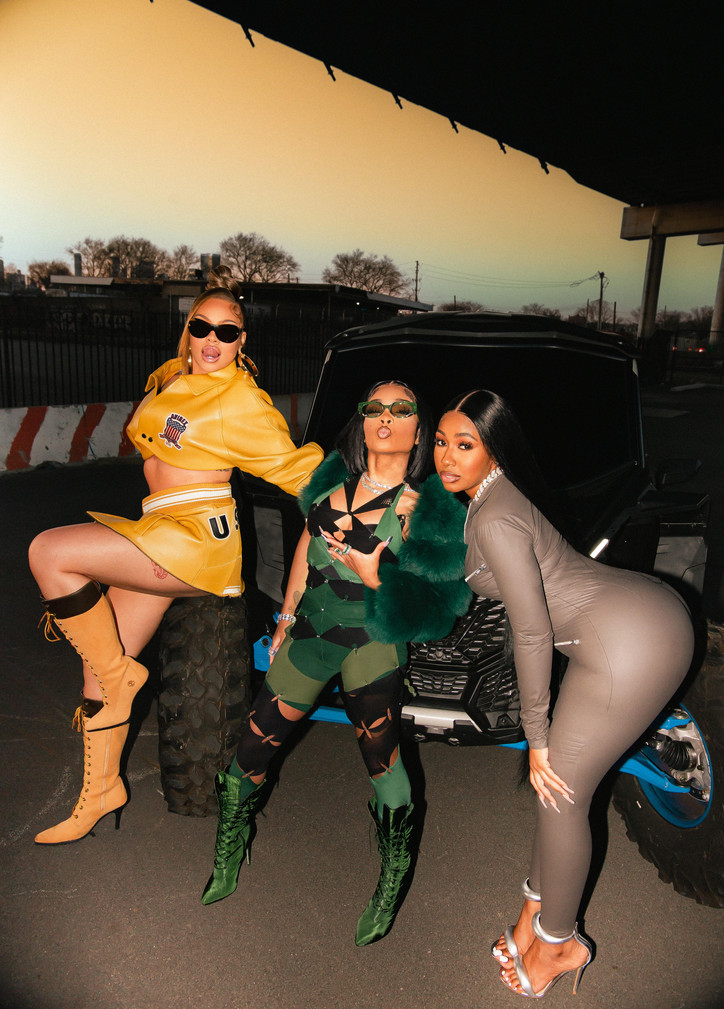
Yeah, it’s a very sexy mix. The visuals for “So Disrespectful” is such a good modern take on 90s rap videos. Did you have a lot of say in the creative direction?
Any video that you've ever seen me do I have most definitely had the most say on it. Like I'm always saying, This is what I want. This is what I need. And this is what I disliked. Because when I'm in the studio, making these songs, I know exactly how I see myself because I'm the one writing the music. So, you paint the picture already and that's how you even start to become an artist. You're painting pictures in your head. You just so happened to be by a mic and express it a different way but it starts in your head first.
How has tour been with A Boogie, and how does it feel to have that type of support from him and other shoutouts and cosigns from other rappers?
Like a movie actually. It feels surreal. Honestly, Sometimes I wake up and be like, so surprised that I am where I am in life, but then I double take and think,’ I've worked for this.’ So, this should be happening.
What are some things outside of rap that you’d like to be known for?
Acting, of course!
What kind of movies would you want to be in?
I always see myself in movies like Boys In The Hood, Paid In Full, Bad Boys, Transformers. Any type of movie, honestly, I’m down as long as they got some action in it.
You would eat in a Bad Boys remake.
Thank you! Yeah, I would love to be in a Bad Boys movie for sure.
If you can tell us, when can we expect the album? People, including me, are waiting.
I know! I'm not going to have y’all wait too long but for sure for sure 2023! You guys will have a project from Lola Brooke. I’m not gon’ play with it!
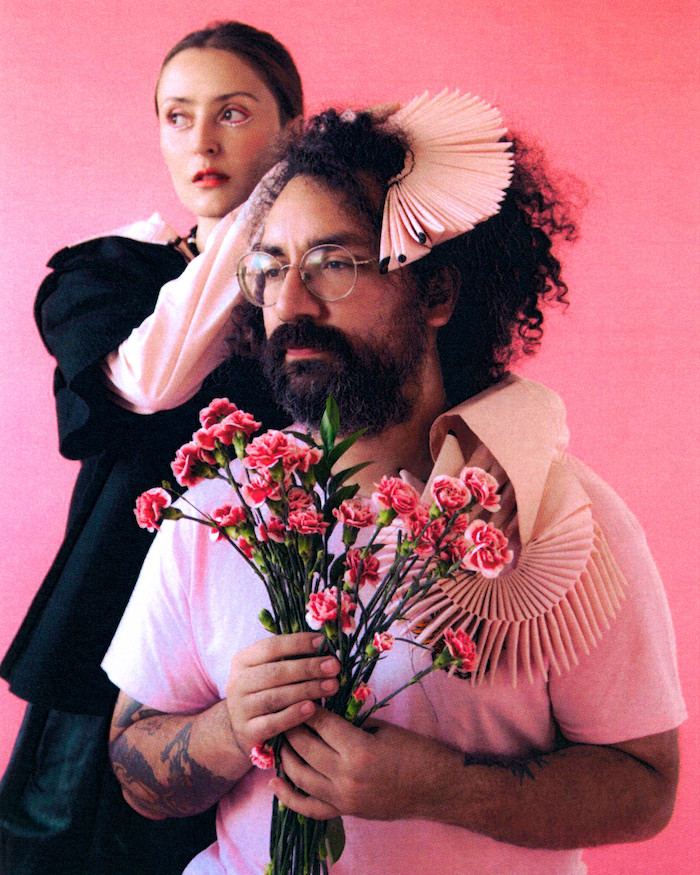
office caught up with Salt Cathedral ahead of new show dates regarding upcoming tracks, sonic inspirations, and more.
You both share a similar upbringing as you grew up in Bogota, Colombia — in the same exact neighborhood. What parts of your background have influenced your outlook on music and the industry as a whole?
Juli— So we did have similar backgrounds, but we also had very different backgrounds. Nico grew up with a lot of music in his home. I grew up in a very silent household — my parents didn't really listen to music. I think because of where we came from, we never had a role model. We could never reverse engineer and say, "I want to be like so and so,' because there really was no industry when we were coming up in Colombia. There wasn't a heritage cultural industry the way there is here, with labels and all of that. I think it was this free-form path of us just wanting to make music. That background has informed the way we see music in the sense that the music's still made a hundred percent by me and Nico. That's the point of making music. Writing our own songs and producing our own songs is really important because the process is as important as the destination. Nico grew up playing more hardcore metal, stronger music and I tend to like things that are a little softer. So I think there's always this push and pull in the music, which I find is very beautiful.
As far as cultural influence, tell me about some of your favorite parts of growing up in Colombia; in what ways do your cultural backgrounds inform your music?
Nico— Well, I think because there was a lack of sound technology, we took nothing for granted. So playing with a good instrument or good equipment was something that was an amazing experience for us. We place a huge value on things like that. We value making a record; we value having a conversation with you. And that's the best part about growing up in Colombia; there's scarcity and that really tells you what's important. So we still have that mentality regardless of what success or ambition we achieve. We are very grateful that we are able to keep doing music. There's still no Amazon in Colombia; that fast access to things, especially with music, just doesn't really exist. So when you have access, you just have to go at it with such a passion. And I see Colombians whenever they have the opportunity, they just go for it, you know?
Now, for a lot of artists that are bred in the U.S., TikTok and social media are the heart of everything. But you guys had kind of a different approach, which I find really interesting. You did this in a more organic sense, which is really cool.
Nico— Yeah, and I hope more people approach the industry in that organic way because it makes the talent the core of it. The best part of being a musician is to play music and write music. It's that simple. And it's not about the rest; the rest is just complimentary. And I feel like now social media is almost like the essence like you said, but it would be cool to just go back into the start because I feel like there's more humanity in it. I think we need more humanity. And I feel our upcoming project is about that. Writing a song to somebody that you love — there's nothing better than that.
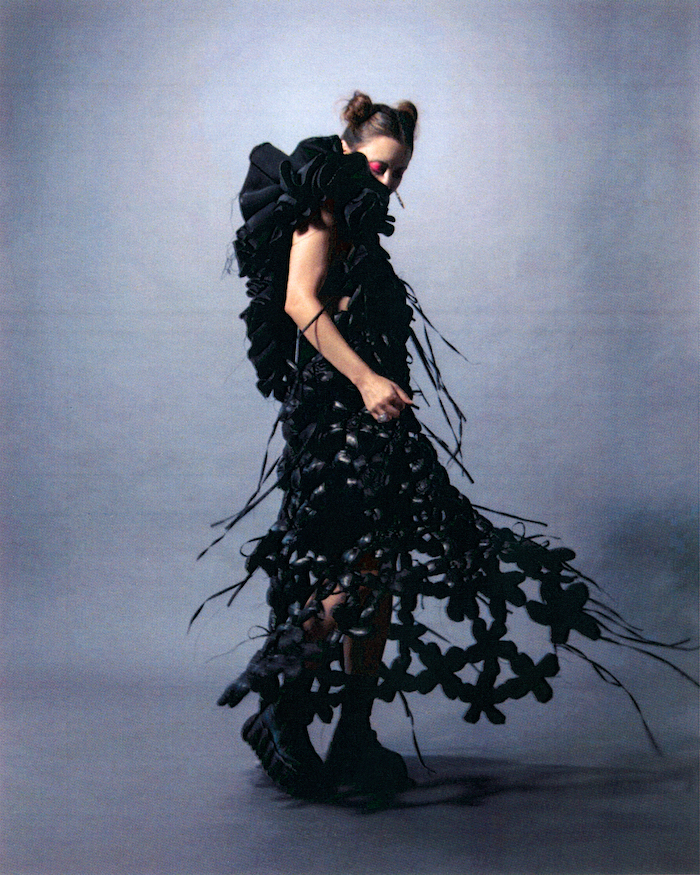
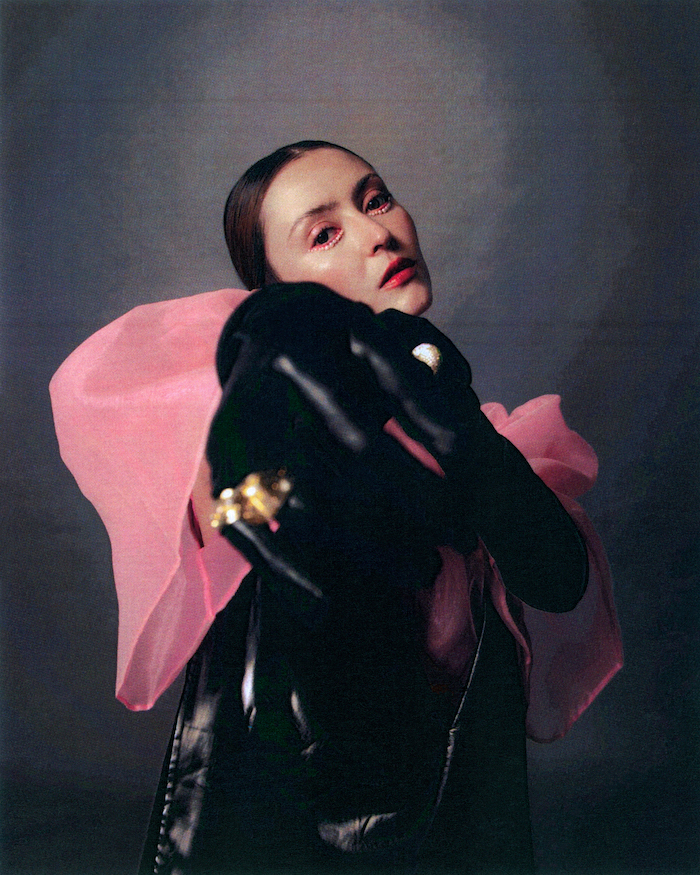
Your paths converged when you formed the band after meeting at the Berklee School of Music in Boston. What made you both decide to take that leap and pursue music professionally?
Juli— I don't know if we were very calculated about it. I mean we do this and we live off of it, so that's great. But because it didn't come from the American context of the music industry, there was never a thought of, 'Oh, I'm going to be the next Elvis Presley!' The only reference we have in Colombia really is Shakira and we love her, but we were not going for Shakira's sound exactly. I think that was a harsh reality at some point where you think, 'Oh wait, how do we make a living off of this?' From what I know from Nico, he didn't have any other plan. He had been doing music since he was seven, so it was a straight path. For me, I was rebelling against everything and everyone I knew. I always felt this urge to create and to be in the arts even though arts education is not very big in Colombia. That's how I ended up studying music. But I think even though both of us studied music, we never set out to do it professionally.
We just kind of made records and flyers and if you were there, you were there at the show. And then we booked a tour, just the two of us and three other people — our band. And I drove the entire way across the U.S. for that tour. We didn't have an agency, there was no Instagram, no TikTok, no Spotify, nothing. We put out our first EP for free on Bandcamp. And it got like 5,000 downloads, which I thought was huge. And honestly, now that I think about it, it is kind of huge. There weren't tons of channels to be promoting our music. It all just happened. And I think that is also why what we do comes off organically in that sense.
Even when you mentioned the first EP being put out for free on a platform that is really accessible to a lot of people, I feel like that ties in perfectly with the ethos of your story and how you got where you are now. A lot of your music brings together multicultural sounds. There's even some blending of genres as well. Why is diversity important to you when selecting collaborations?
Nico— It's always been super important for us because of the way we listen to music. And just the way we are. We've been living in the states already for about 12 years and we have friends that are very diverse. It's part of who we are. We've been so exposed and we are basically the product of diversity as well. Openness is essential for us. Our music is just the product of that mindset. Our collaborators have ranged from Big Freedia to Lee Scratch Perry to MC Bin Laden — all different kinds of trajectories. And we tour with different people from all around the world. We have lived in Bedstuy for over 10 years as two Colombians who are open to everything and accepting of everyone. That's our thing. I love every type of music and I feel like music is proof that everybody has something to give and everyone is equal.
Juli— I think it comes from the immigrant mentality as well. Who do you relate to when you're an immigrant here? Other immigrants. And what does other immigrants mean? Literally anyone from anywhere in the world. I think the perspective of living somewhere where you're sort of an outcast has really changed the way we interact with our music. Plus, obviously the love of all kinds of music. Music is cultural and it's broad and it speaks to everyone. Its beauty comes across in any language and you can say the most romantic things about music and they're all true.
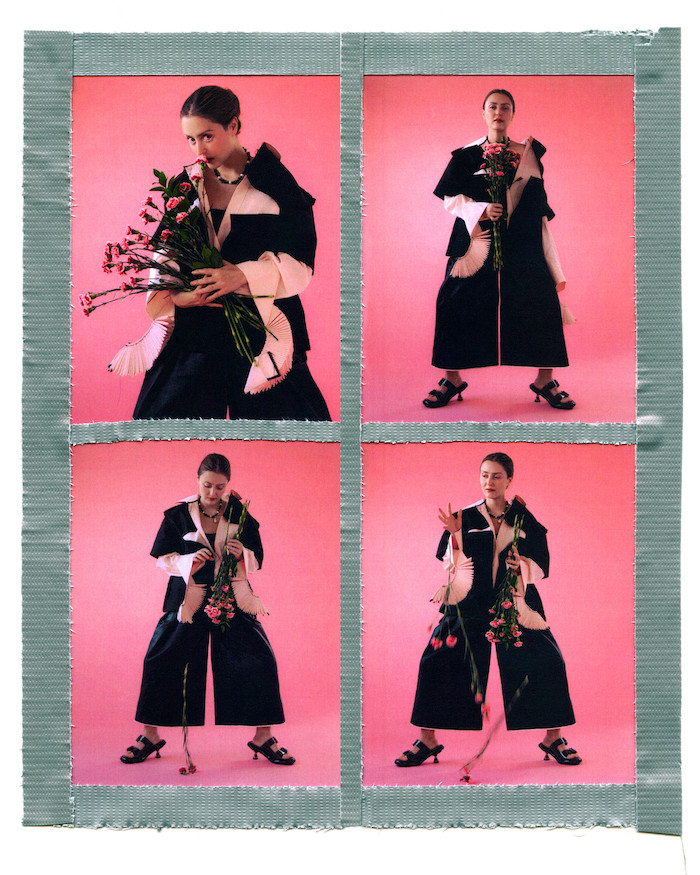
I like the idea of music as the equalizer, the universal language that everyone can speak. Your sound brings together all of these pieces and people from your life. We touched on your first tour. I wanted to kind of go back to the early days — how did that feel putting out music and then getting to perform some of your first shows in New York City?
Juli— I mean, it was surreal.
Nico— I don't think we felt anything in the moment. We were on the go and so when you're on the go, we were not thinking so much. We were just living life, playing the shows, sometimes playing in front of 10 people, sometimes opening for a band with a crowd of 300 people. But everything felt like an adventure. And it still is for us. This is a huge adventure that we really don't want to end. It's so fun to just do our thing. Back then, it was a beautiful time when we were just not overthinking.
Juli— That is so true. We were never thinking of, 'How many tickets did we sell,' or 'What's our next strategy?' It definitely was surreal in the sense that I had to remind myself: I'm from Columbia and I'm playing a show in New York. Like, that's crazy. That's what you see in movies. I never thought I would end up doing this.
After that, you guys went on to make more music. You released some more singles and continued touring in all different places. How do you feel like your sound started to evolve after you spent more time touring, writing, and making music?
Juli— So the first EP, we were out of jazz school and we recorded with a band. After that, we were like, 'We can produce our own music.' So we get our hands on Ableton and it was sensory overload. We were listening to Flying Lotus, Until the Quiet Comes, and we're like, 'What is this? It's jazz chords and electronic music!' It opened up this crazy world for us. We made our EP and then we got to play a lot of it live. But there was one thing missing; we both wanted to have people dancing.
We started experimenting with some dance hall beats in Bedstuy. And Bedstuy is just full of Jamaican music. I remember one time we played in the East Village and people started dancing immediately and we were like, 'Oh, here we go.' So I think that changed our music because it was this interaction with other people and we were in the studio thinking, 'How will this translate live?' And we did CARISMA, which is a very Latino record, and we were kind of looking back into our roots. Then we couldn't play live because the pandemic happened, but we're going to play a lot of the songs live now.
As you said, after you released CARISMA, the pandemic happened and you didn't really get to properly perform. At that time, how did you continue to find inspiration? It was a difficult time for a lot of creatives. I feel like we were all limited in our work and the people that we could connect to through our work. Did you have any unexpected sources of inspiration that arose during that time?
Nico— Absolutely. For the record we ended up making, the inspiration was based on having this time and this space and thinking about the future. And I think that was a huge source of inspiration because we felt we needed to change as people. It seemed like everybody else also had to rethink how to act and behave. So we treated the upcoming recording project as our last because during that time we felt that we didn't know what was going to happen. We were not part of our label anymore. We didn't have any ties. We were not working with management.
Everything started from zero. As you said, the world really changed after that. We put all of the ideas that we could into the upcoming recording project. And that was so inspirational when you think about it. For example, the song we're releasing tomorrow is called ‘Strong Emotions.’ It's a song that when I think about it now, we took all the left turns possible.
Juli— The moment inspired the moment, which is very meta, but it was like before this moment is gone, let's write this album. We didn't know if we had to go and get jobs or move out of the country. There was also the freedom of leaving our label and not having to go and play shows so we could literally just write all the time and be immersed in this world.
I think for a lot of musicians, writers, or anyone in the industry, that is what trips them up sometimes — thinking too far ahead. Your upcoming project delves a lot into anxiety about the future, social media, and so on. What does an ideal future look like for both of you?
Nico— Now that we're here, our future is that we're going to play six concerts in Medellín, Bogota, New York — we're going to play these songs on a big sound system and we're going to be able to sing what we feel. The future is very promising and inspirational. It feels right to put out positive messages right now. We all deal with real problems, so it's good to have some music or some piece of expression that is conscious. So for us, the future is coherent. We feel coherent with what we're doing.
Juli— I think it's about putting these conversations on the table and being able to talk about them. It's okay to talk about the fear of having children because of climate change. And things that, you know, maybe are not as spoken about on social media. In one of our songs, I say, 'I know you say you think about the future, but it happens all the time.' We're writing our future right now. So it's like, do you choose to spend all day scrolling on your phone? Or do you choose to go and read a book or interact with another human being? What Nico's saying is that being able to put this out for others is a gift. And hopefully, we can find a connection in it and start conversations so people can start these conversations.
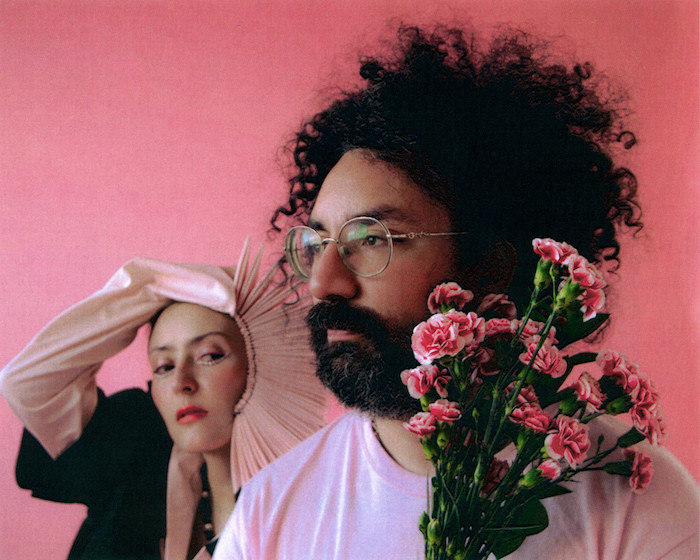
“Strong Emotions” is the next single you are releasing. What emotions do you hope the song conjures in listeners?
Nico— Hopefully liberated and free. The things we just discussed are very serious, but at the end of the day, the only thing that we hope for as musicians is that people will connect with it. Hopefully, this song will give you a little bit of a boost of energy, a boost of feelings, and a boost of solidarity. That's what music gives me. So I hope that 'Strong Emotions,' when you hear it, is just full of color. Hopefully, you feel your heart rate start speeding up and just feel that energy because that's what it's about.
Juli— During the pandemic, I think it was the first time I felt boredom. So I just wanted to make something strong. Nico sampled this baile-funk beat and I just had a mic. That's why the entire song is literally drums and vocals. It was all kind of one-take improvised. So I hope people feel freedom in the sense that, you know, you can entertain yourself in whatever quirky way you find. There's beauty in that.
Not only is your sound infectious, playful, and colorful, but so are your personas. Your style reflects the alluring qualities of your music. How would you describe your personal style?
Juli— I am heavily affected by color, in general. I really like warmth and vibrant colors. Color and music are very similar to me.
Nico — I'm getting to understand how to dress depending on my mood. It isn't really about specific aesthetics. It's more about whatever I'm loving at the moment.
It's a similar approach to the music that you guys have — a reflection of a moment or a feeling. After a few years of reflection, you have hit the ground running again. What do you hope the rest of 2023 brings and how did the past few years dictate your outlook on this one?
Nico — We're going to do some shows and release a small film as well. And the idea is to tour extensively so we can compensate for what happened in 2021. So we're going to keep promoting CARISMA as well because we didn't really have the chance. We're getting ready to just be on the road as much as possible.
Juli — I just think being in rooms is so special because it's a moment — it's a gathering. You're there and you get to share it with others. So I think my ideal year would be to continue that snowball effect with the music. We want to share these themes, this music, and this energy with people all over the world. We want to create this universe of Salt Cathedral where anyone and everyone is welcome to feel joy and freedom.
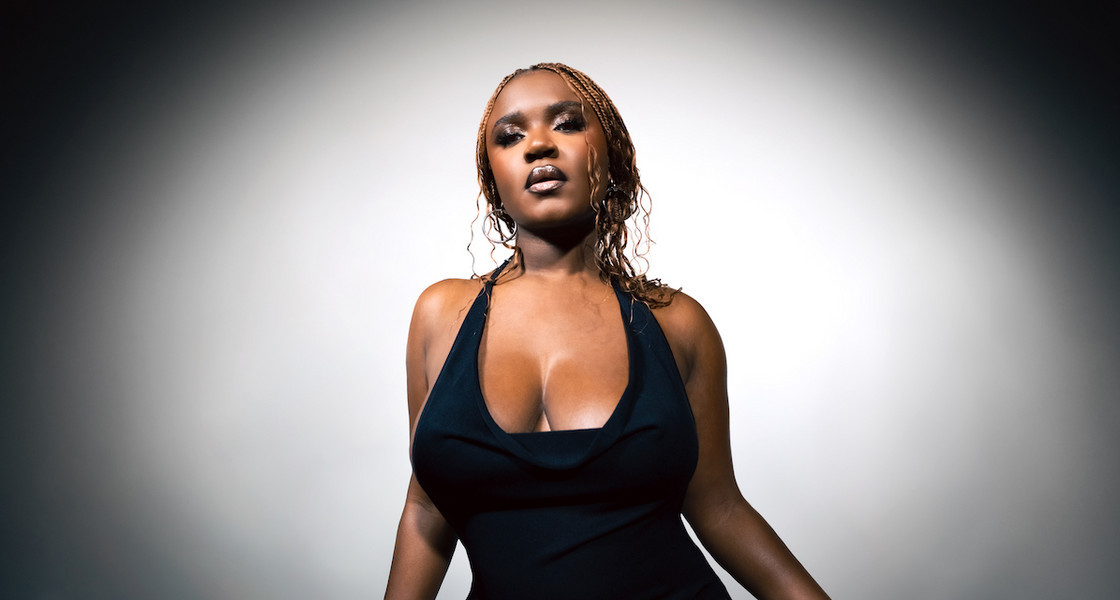
Though Amaarae has been blessing her fans with features throughout the last two years, everyone and I mean everyone, has been anticipating her second studio album. Her first full-length project, The Angel You Don't Know, cemented her distinct and unwavering voice as a rockstar who loves money, sex, and fun. Climbing Billboard charts with her remixed song, "Sad Girlz Luv Money," featuring Molly and Kali Uchis, the TikTok hit became an anthem for not only hot girls but queer hot girls, an unabashed acceptance of her identity.
If you've followed Amaarae's career for the last several years, her identity and sexual expression have not been shied away from. However, they have been a defining aspect of her artistry as of late. Today, her single, "Reckless and Sweet," accompanied by a hot and heavy music video, further her embrace of sexual tantalization, where models Leomie Anderson and Monyjok Ngor Deng are positioned around her, a seduction of the camera. Sexual fluidity floods the luminous blue video, shadowed, making it apparent gender does not sway attraction but rather fuels it. Amaarae states, "This is my sexiest video to date, and what I love most about it is that young Black women and men are about to see what our new energy is for 2023 and beyond. Moving forward, we're grown and sexy. We’re going to make sure we always look our best, talk our best, walk our best, and most of all we’re bringing love and romance back! 'Reckless and Sweet' is a sexy song. It’s about being intentional with the ways we make and give love. It’s about finding the inner sensuality and confidence without yourself and sharing that with the world."
As the music video plays on, Amaarae continues to tease her second studio album, holding a newspaper with the front page reading, "REPENT! Fountain Baby is coming soon." A guaranteed hit with experimental echos and abstracted lyrics, "Reckless and Sweet" sets the tone of her upcoming full-length project. Ringing in spring with a track sure to push the boundaries of contemporary sound and production, Amaarae continues carving a path in the industry, a fiery lane all to herself. An international rockstar with a catalog to match, the Ghanaian singer is making 2023 her year and the years to follow.
Check out "Reckless and Sweet" below.